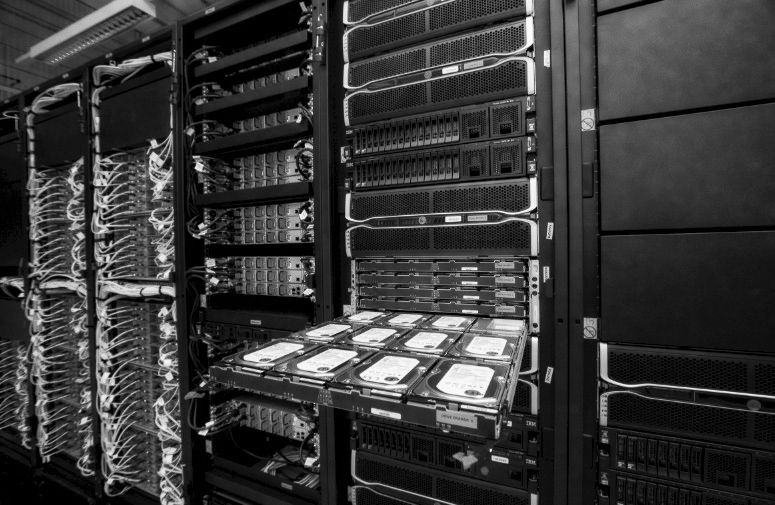With over 700 employees, Cineca is Italy’s largest and most advanced high performance computing (HPC) center, channeling their systems expertise to benefit organizations across the nation. Comprised of six Italian research institutions, 70 Italian universities, and the Italian Ministry of Education, Cineca is a privately held, non-profit consortium.
The team at Cineca dedicates itself to tackling the greatest computational challenges faced by public and private companies, and research institutions. With so many organizations depending on Italy’s HPC centers, Cineca relies on Intel® technologies to reliably and efficiently further the country’s innovations in scientific computing, web and networking-based services, big data management, visualization, and much more.
Enabling HPC For Everyone
As a national consortium, the combination of Cineca’s technology, innovations, hardware, and human expertise make it Italy’s centralized hub for supercomputing needs. Through Cineca, world-class HPC systems are ready for a diverse array of projects in academic, scientific, and industrial sectors throughout Italy and the European Union. Grouping the supercomputing technology and expertise under the Cineca umbrella, the centralized HPC resource center has the capacity to serve many different organizations when needed, while simultaneously being extremely cost-efficient. The cost of HPC development, maintenance, skill, and support can be expensive. Through Cineca, the consortium’s investment is distributed across many sectors and projects, and they can realize a return on their investment more rapidly.
Today, Cineca’s on-site experts assist their clients to get the most from the computing technology. In this way, organizations do not require their own dedicated HPC expert in-house. Looking to the future, and an ever-growing need for more supercomputing professionals, Cineca also focuses attention on training today’s and tomorrow’s HPC specialists. Through Cineca’s academic programs, 750 students per year have an opportunity to pursue advanced degrees; 50 Cineca staff, focusing on the educational aspects of the consortium, teach courses, host international workshops, offer summer school programs, create educational coursework, and sponsor PhD programs.
With so much academic research happening simultaneously across Italy, Cineca also offers management systems and services for the Ministry of Education University and Research (MUIR). In this role, Cineca operates as an “operational technical arm” ensuring coordination, management, and interaction of expansive academic projects through MUIR, as well as capability for process monitoring. Using advanced telemetry systems, Cineca’s computing systems streamline communication not only between MUIR and researchers, but among the researchers themselves. The technology enabling this comprehensive knowledge transfer not only facilitates better collaborative processes among those involved. It also offers the flexibility to encourage greater independence and accountability among researchers. Through improved internal processes and knowledge transfer, all parties involved enjoy the greater levels of innovation which come with better communication.
Power Where It Is Needed
In order to achieve the scale and performance requirements for this array of innovative research projects, Cineca utilizes several key elements of Intel technology within their specially-configured supercomputing systems. In tribute to Italy’s contributions to global technology, Cineca named their HPC systems after Italian inventor and electrical engineer Guglielmo Marconi.
The Marconi-A1 system, configured in July 2016, is the first of three systems based upon Intel Scalable System Framework. It utilizes Intel Xeon E5-2697 v4 processors at the center of a 1,512 node system. With 36 cores per node, and Intel Omni-Path fabric, Marconi-A1 achieved approximately 2 petaflops of performance.
Cineca’s next generation Marconi system, the A2, stitches together 3,600 nodes with 68 processors per node thanks to incorporation of Intel® Xeon Phi processors. With the inclusion of these technological advancements, the Marconi-A2 achieved peak performance at nearly 11 petaflops, placing it at number 12 on the November 2016 Top500.org list of the most powerful supercomputers worldwide.
With new Intel technologies expected in 2017, the Marconi-A3 system has potential to exceed the previous two systems’ combined performance. Intel Xeon Phi and Intel Xeon processors (codenamed “Skylake”), complemented with Intel Omni-Path architecture, will enable the new MARCONI system to achieve peak performance nearly double that of the Marconi-A2 system. With 7,600 nodes and 365,760 cores at the ready, the Marconi-A3 is expected to deliver about 20 petaflops – an astounding achievement.
Cineca sees its investment in the latest Intel technology critical to its long-term success. Of course, more powerful computing systems deliver results more quickly. When HPC systems are used for manufacturing and design, faster computers speed new product development, shaving research and development costs. Reduced time-to-market also means that profit from the investment can be obtained more rapidly.
View a short video where Cineca’s Sanzio Bassini, director of supercomputing applications and innovation department, explains more about the organization’s future plans.
Crunching Numbers
Cineca’s advances in its HPC environment help organizations address many scientific challenges which appeared insurmountable just a few years back. For example, Italy’s National Research Institute prioritizes study in high energy physics, oceanography, geophysics, astrophysics, volcanology, and theoretical physics. In each of these cases, unlocking the mysteries of each scientific field requires the greatest level of computing power available today for advanced modeling, simulation, 3D visualization, and evaluation of new theories. With Cineca’s support and resources, each of these fields has access to the supercomputers and expertise necessary to pioneer new discoveries.
Many other organizations in Italy enjoy similar benefits from their HPC technology. Among other sectors, Cineca partners with Italian organizations focused on healthcare-related projects. Emerging fields like biomedicine, genomics, nanotechnology and biotechnology rely on supercomputers to advance medical research, and seek cures for diseases. While the consortium’s technology helps researchers with the most complex analyses, it also can assist with secure management of clinical trials in accordance with Italian health unit governance. Among larger healthcare-focused projects on the near horizon for Cineca, Italy has committed over €1 billion to fund the Human Technopole project. Over the next ten years, the endeavor will pioneer work in genomics, life sciences, nutrition, agriculture, and much more.
Energy represents another critical area of research in Europe requiring supercomputers. Cineca, in partnership with the National Agency for New Technologies, Energy and Sustainable Economic Development (ENEA), is forging ahead with research and modeling of fusion reactors. Dubbed the EuroFusion Project, the research will receive €30 million Euros in funding each five years.
Big data represents another big opportunity for the consortium’s supercomputing prowess. Data mining, data warehousing, and analysis are increasingly critical to organizations who depend on quick results. Business intelligence offers various industries the insights they need to remain competitive on a global level.
Today’s meteorology represents another major challenge for computer modeling. Today’s forecasters depend on HPC systems to amass environmental data, and perform rapid analysis developing weather systems. While this certainly helps with day-to-day weather forecasting, if potentially threatening weather systems can be predicted earlier, there is more time to warn the public should safety concerns arise.
Greater Than The Sum Of The Parts
Cineca’s expertise and increasingly-powerful HPC technology enable greater innovation across Italy and the European Union each day. Academic researchers, government institutions, and industries in all sectors benefit from the Cineca consortium’s efforts. An old saying suggests, when the tide comes in all boats can rise together. Similarly, the ever-rising tide of technology advancement, enabled by Intel Scalable System Framework, gives Cineca the HPC tools it needs to elevate 21st century innovation and collaboration across Italy.
Rob Johnson spent much of his professional career consulting for a Fortune 25 technology company. Currently, Rob owns Fine Tuning, LLC, a strategic marketing and communications consulting company based in Portland, Oregon. As a technology, audio, and gadget enthusiast his entire life, Rob also writes for TONEAudio Magazine, reviewing high-end home audio equipment.

